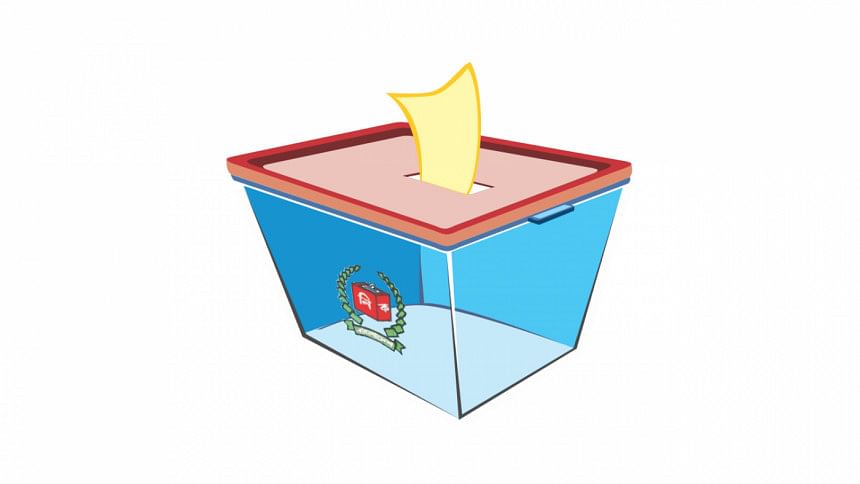Opinion: The Net Effect

LAST Tuesday's elections in Dhaka (North and South) and Chittagong city corporation elections have seen some significant mechanisms that the candidates have used to woo the voters. The use of different digital platforms to get votes has been the latest among them. We have seen vote-seeking elephants and caps with the symbol of a candidate pasted on it, not to mention black and white leaflets and pamphlets that have been thrust into the hands of the voters on their way out of the mosques or of schools. But the use of digital media is new and it is something that has come here to stay and make its presence felt in future election campaigns.
During the nearly month-long electioneering for the mayor of Dhaka, Bangladesh Awami League (AL)-backed Dhaka (North) candidate Annisul Huq has perhaps used the digital media way better than his competitors. Huq's team has made some interesting internet advertisements that were put in popular Bengali webpages. A Facebook (FB) page supporting his candidature was also made which has given him some significant fan-following. Gonoshonghoti Andolon leader Zonayed Saqi's FB page has also boasted some 'likes' and has had some active online activists supporting his cause, save for that other mayor aspirants have limited their online activities only to setting up FB pages.
It is indeed surprising that only AL-blessed candidates Huq and Sayeed Khokon had sent bulk text messages to the voters of their respective constituencies. Of the major mayoral candidates only Khokon has a web presence. His site (http://www.sayeedkhokon.com) is filled with old photographs and news clips, the latest being a month and a half old. Huq does not have a personal webpage, a google search will result only in his personal page at the webpage of Federation of Bangladesh Chambers of Commerce and Industries. Huq last tweeted in December 2011.
Bangladesh Nationalist Party (BNP)-blessed two candidates do not have any significant web presence either. Dhaka city party stalwart Mirza Abbas, who ran for Dhaka (South) mayor, has a FB page with 100,000 likes and is quite active. But his reach to the voters online stops at that. He has never tweeted, and except for a mention in a bank's webpage, his online presence is limited to the bare minimum. Another candidate Tabith Awal's FB page has some strong following, but he, too, does not have a webpage. He did not send any sms to his voters prior to the election, neither has he put up any online advertisement.
Be that as it may, it is indeed surprising that for the cities that are thriving with hundreds and thousands of internet users, the AL and BNP-backed candidates have put their trust more in meeting the voters in person and there are reasons for that. Internet in Bangladesh has not been developed into a serious mode of communication inside the country. It is true that there are 44.6 million internet users in the country and Skype, Viber and Whatsapp are considered to be a cheap way to be in touch with the loved ones at home and abroad. But e-commerce in Bangladesh is still at its infancy: ordinary Bangladeshis do not yet see the internet as a medium using which one can be a part of e-governance or other such serious matters. This trend is reflected in the election results of two major left leaning candidates. Saki, who has a FB following of around 20,000, has seen his security deposit forfeited. The same goes for the Communist Party of Bangladesh and the Socialist Party of Bangladesh's joint candidate Abdullah Al Kafi Ratan. Another mayor aspirant MD Golam Maula Rony, despite a towering online presence has failed rather miserably to translate his online support into real votes.
None of the candidates has made use of mobile apps, pre-loaded with bios, manifestos and short videos that could have come handy to put their messages across. Even though all of them had participated in several face-offs on television, we did not see them engage in any mass online chat or creating any FB or Twitter hashtag in their favour. In fact, the use of internet has been a subdued affair in the city elections. The only two trending that deserve some mention here are #CityPolls2015 and #CityPolls, the last being used by the US Ambassador from her official Twitter handle.
Bangladesh's online scene wore a different colour altogether from the early afternoon of the Election Day. Facebook timelines were flooded with first time voters proudly displaying their thumb along with the ink mark that signified the casting of their votes. Along with it came, perhaps more in number, the stories of disgruntled voters, who went to the centre en masse only to realise that their votes had already been cast. Jibes hurled at the ruling AL and the Election Commissioner, and humourous images of the latter were soon made and shared.
More serious perhaps were the videos of rigging that started to circulate online. Some of these clips are from the news of different television channels, but most of them are taken by private individuals, frustrated at being denied their rights to vote in such a despicable manner.
There is, however, no denying that online is the new frontier, and the battles of the future are to be fought on different platforms of the digital media. If Mao Zedong were alive, in his Problems of War and Strategy, he would have written: political power grows out of the click of a mouse. Only time can see how the country's political leader uses the internet and the social media in the days to come.
The writer is the Editor of The New Anthem (Tranqubar; Delhi; 2009). He can be contacted at: <[email protected]>
twitter: @ahmedehussain

 For all latest news, follow The Daily Star's Google News channel.
For all latest news, follow The Daily Star's Google News channel. 



Comments